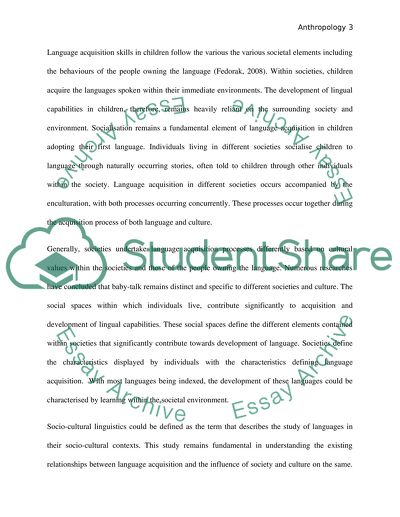Cite this document
(“Language Anthropology in Different Societies Essay”, n.d.)
Language Anthropology in Different Societies Essay. Retrieved from https://studentshare.org/anthropology/1598121-critically-discuss-the-following-statement-with-reference-to-the-anthropology-of-language-and-classification-the-worlds-in-which-different-societies-live-are-distinct-worlds-not-merely-the-same-world-with-different-labels-attached-sapir-quoted-i
Language Anthropology in Different Societies Essay. Retrieved from https://studentshare.org/anthropology/1598121-critically-discuss-the-following-statement-with-reference-to-the-anthropology-of-language-and-classification-the-worlds-in-which-different-societies-live-are-distinct-worlds-not-merely-the-same-world-with-different-labels-attached-sapir-quoted-i
(Language Anthropology in Different Societies Essay)
Language Anthropology in Different Societies Essay. https://studentshare.org/anthropology/1598121-critically-discuss-the-following-statement-with-reference-to-the-anthropology-of-language-and-classification-the-worlds-in-which-different-societies-live-are-distinct-worlds-not-merely-the-same-world-with-different-labels-attached-sapir-quoted-i.
Language Anthropology in Different Societies Essay. https://studentshare.org/anthropology/1598121-critically-discuss-the-following-statement-with-reference-to-the-anthropology-of-language-and-classification-the-worlds-in-which-different-societies-live-are-distinct-worlds-not-merely-the-same-world-with-different-labels-attached-sapir-quoted-i.
“Language Anthropology in Different Societies Essay”, n.d. https://studentshare.org/anthropology/1598121-critically-discuss-the-following-statement-with-reference-to-the-anthropology-of-language-and-classification-the-worlds-in-which-different-societies-live-are-distinct-worlds-not-merely-the-same-world-with-different-labels-attached-sapir-quoted-i.


